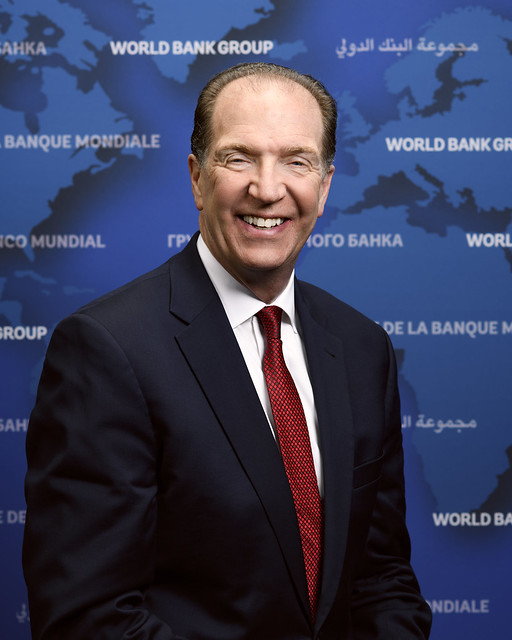•Urges Transparency In Govt Debts, investments
David Malpass, President of the World Bank Group, says Africa’s economy has remained sluggish because her biggest economies- Nigeria, South Africa, and Angola continue to underperform in recent years, just as they are unable to attract the needed foreign investment.
Speaking at the UK-Africa Investment Summit in London, Malpass noted the need for the continent to seize the growth momentum, intensifying cross-border trade and investment, vital ingredients for development that would lift Africa’s average growth rate.
For him, vested interests are at the core of both challenges, challenging African countries to urgently remove the government’s excessive footprints in the economic space that continues to crowd out private-sector activities. Governments, he said, must focus on reforming state-owned enterprises and de-monopolizing markets for greater competition in key areas such as agriculture, transport, and energy.
Africa, the World Bank President continued, “needs to reduce barriers to cross-border trade. Red tape and excessive regulation keep goods, services, ideas, and resources from flowing freely among countries.”
More intra-regional trade, he stressed, can generate the pressure and resources for improved infrastructure, just as government debts and investments need to be more transparent. This, he believes, will give people more voice in the contracts and commitments made by their governments, a critical basis for implementing the rule of law.
He also challenged the region to address “learning poverty,” especially against the backdrop of a recent study showing that as much as 80% of children in Africa lack the ability to read a basic story at the age of 10 in some African countries.
These inadequacies, notwithstanding, Malpass urged donors and investors to agree that the time for Africa is now, not wait “for every economic condition to be perfect.
“Let’s seize the moment and start delivering immediate wins that can rapidly transform economies and improve people’s lives.”
During the summit, he stressed the importance and difficulty of transformational improvements in economic programmes, adding that “faster, more sustained and broad-based growth is the only path to creating the jobs and stability needed for the millions of young people reaching working age and is vital to the World Bank’s mission of alleviating poverty and raising living standards.
“Investors are eager to have a positive impact on development while seeking portfolio diversification and sound returns. Building these investments has been difficult, but with effort and leadership, the opportunity exists for many African countries to become competitive.
“Significant progress has been achieved in Africa over the past decade, thanks to the efforts of a new generation of policymakers and business leaders emerging across the continent.”
Africa’s success stories, he stressed further prove that countries can grow, with the help of foreign investment and international development assistance notably from the UK playing an important role.
He listed building blocks for progress to include the need to ensure that rules of law that encourage competition and are enforced in countries, in addition to sound money, spending discipline, clean water, and dependable electricity, all of which are requirements for progress.
The World Bank boss called for a balance between taxes and regulation while encouraging sustainable growth, with an early focus on more productive, market-based agricultural sectors.
“Adequate capital is important, and human capital is the most valuable. It can be built through sound health and education systems, a strong focus on outcomes, and legal structures that give all the opportunity to succeed.”
Many African countries, he lamented, “have a long way to go to create these conditions. Too often, wide-ranging, top-down and unfocused policies and programs leave space for vested interests – both domestic and foreign – to further their own agendas and resist opening markets, making Africa’s business environment less attractive for investment. Policy planners are too often influenced by these vested interests. This has held back development, leaving fragility and conflict for many millions of people.”
Trending Today
Menu








